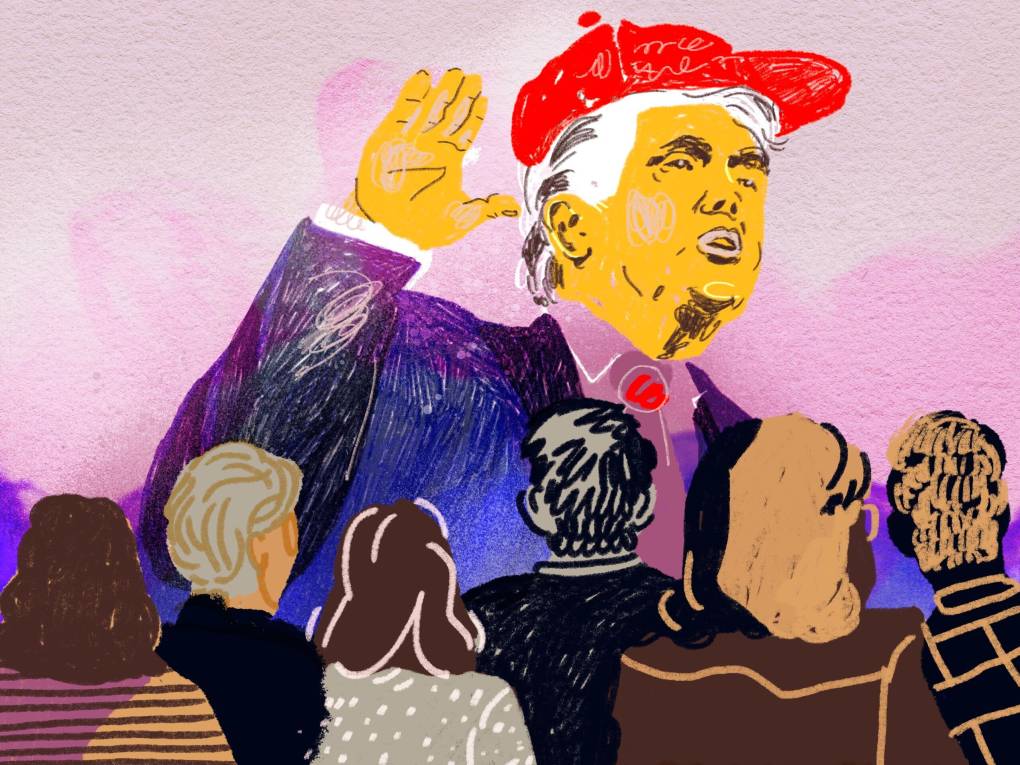But the idea has also drawn skepticism.
“Rather than addressing these policies in a substantive way, they’re fighting what they perceive to be the problem of performative politics with more performative policies,” said Eric Jaye, a political consultant. “And if it wasn’t so sad, it would be laughable.”
Men still make up the majority of the highest elected positions in the country. Women, particularly women of color, earn less than men on average. Across the country, abortion rights have been rolled back, diversity efforts slashed in both public and private sectors and rights for transgender people and LGBTQ groups face constant threat from President Trump’s agenda.
The resolution does not acknowledge how Black and Latino men disproportionately experience the struggles all men face around mental health, college readiness and income disparity.
For example, Black men earn about 30% less in a given year compared with white men, according to the American Institute for Boys and Men.
“I don’t have that big of an issue with [the resolution], but from the Party perspective, I believe there’s a better way to support young men than describing symptoms of disaffection. It feels like [it’s] pathologizing young men,” progressive DCCC member John Avalos, who abstained from the vote, shared in a text message. “For me, it’s better to address the root causes of disaffection and disenchantment — that our society fails to empower young men and provide emotional and vocational sustenance that can lead to self-actualization.
Democrats at the national level are also exploring ways to reach more young male voters. Some strategists are seeking to raise $20 million towards one effort that aims to boost online popularity for the party through advertisements in video games, from influencers and other digital channels.
“It’s completely off base. It hasn’t worked and it won’t work,” Jaye said. “It boils down to this trope, that Kamala Harris should have gone on ‘Joe Rogan.’ It doesn’t matter if you’re on ‘Joe Rogan’ or not. It matters what you say on ‘Joe Rogan.’ So, what would she have said?”
Such an approach could also be difficult in a social media environment run largely by Trump-aligned tech billionaires like Elon Musk, who owns X (formerly Twitter), and Mark Zuckerberg, who owns Instagram and Facebook.
“I don’t know if it’s just advertising that’s going to get it done. I think that you really need to put out some strong proposals and strong ideas that are going to really attract folks and get them excited about the party again,” Ross said. “Just saying that we need to do more for young men is not going to attract men to the party.”
In his own effort to hold more open conversations between Republicans and Democrats, Gov. Gavin Newsom, once the mayor of San Francisco, recently started bringing on guests to his podcast like Charlie Kirk, a right-wing political activist popular among conservative young men.
Newsom received blowback from some saying he’s straying from party values by finding common ground with conservatives opposing transgender rights like playing sports, and others calling the move plain cringy.
Still, supporters of the resolution said that singling out certain identity groups has left some male voters wondering where they fit within the Democratic Party, sending them toward Trump or away from the polls entirely.
Ernesto Cuellar, 26, gave input alongside Fong and others.
“It’s the lack of alternatives that we are giving men, right? We are really trying to show that there is masculinity in kindness, there is masculinity in caring for others,” said Cuellar, president of San Francisco Young Democrats. “It doesn’t necessarily have to be aggressive.”
Supporters, which include progressive DCCC member and Working Families Party leader Jane Kim, also said Democrats shifting away from alienating discourse should not come at the expense of efforts to support traditionally marginalized groups.
“The policy recommendations in the resolution are in line with the values of our Democratic Party and the values in San Francisco,” Hare said. “The Democratic Party needs to wake up and look in the mirror about what really, really went wrong in November.”


